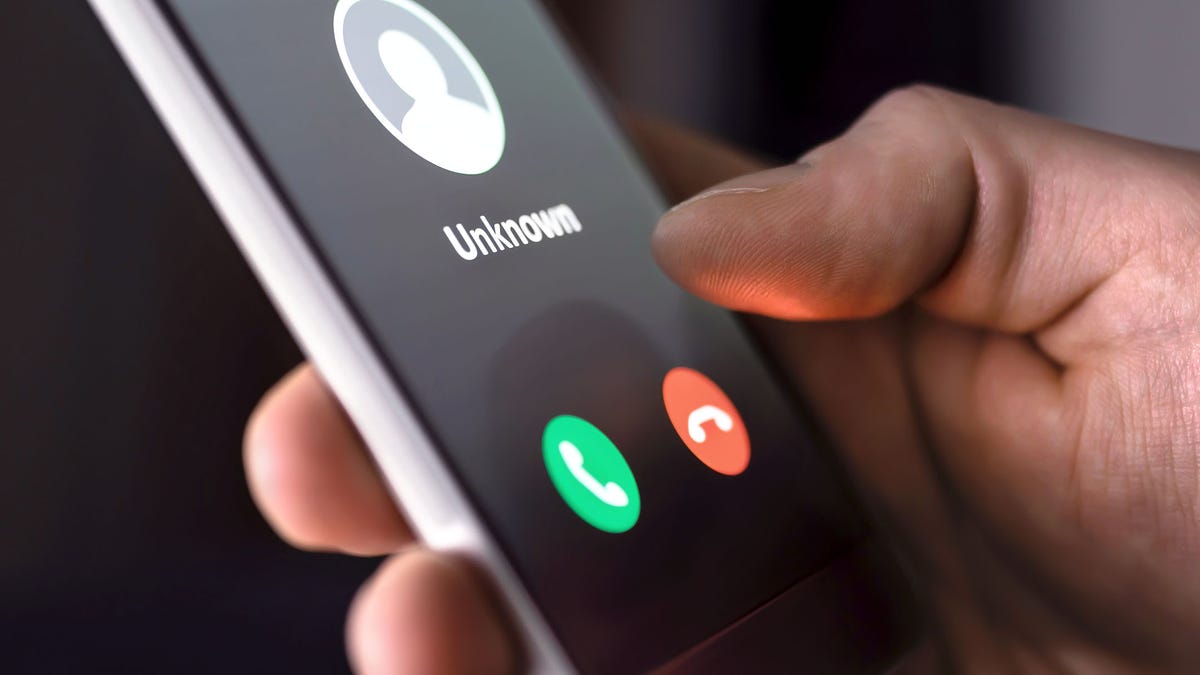
Hate robocalls? Battle against scam calls intensifies
By Brooke Crothers
Published July 03, 2021
Still getting too many robocalls? The Federal Communications Commission now requires that carriers implement stricter measures to combat these annoying calls.
STIR/SHAKEN, the new FCC mandate for phone carriers, is designed to curb fraudulent robocalls and illegal phone number spoofing. The latter is a common scheme where a scammer sends a fake caller ID – typically disguised as a local caller – to hide their actual identity.
The goal is for providers to verify that a caller ID is authentic and matches the number that will show up on your phone. The deadline for implementation by carriers was June 30.
"While there is no silver bullet in the endless fight against scammers, STIR/SHAKEN will turbo-charge many of the tools we use in our fight against robocalls," Acting FCC Chairwoman Jessica Rosenworcel said in a statement.
Though the deadline for large providers was June 30, the FCC said small voice service providers with 100,000 or fewer subscriber lines get an extension until June 30, 2023 – but that extension may be shortened, the FCC added.
Americans received just under 4 billion robocalls in May, according to YouMail. While down from April, the volume was still huge. Robocalls averaged 128.7 million calls per day and 1,490 calls per second, according to YouMail.
ACT ON ROBOCALLS – OR ELSE, FCC WARNS PHONE COMPANIES
In March, the FCC fined a Texas-based robocaller a record $225 million. That telemarketer made approximately 1 billion sales calls in less than five months. The robocalls falsely claimed to offer health insurance plans from companies such as Blue Cross Blue Shield and Cigna.
And in January the FCC fined a robocaller about $10 million for illegally using caller ID spoofing "with the intent to cause harm."

Americans received just under 4 billion robocalls in May, according to YouMail. (iStock)
Verizon and T-mobile have announced that they met the June 30 FCC deadline and are implementing the new rules. AT&T confirmed with Fox News that it is compliant, too.
Verizon said it certified with the FCC that traffic is signed with STIR/SHAKEN caller ID authentication protocols.
"Verizon is now exchanging STIR/SHAKEN-enabled calls with wireless carriers that collectively represent around 80% of the U.S. wireless industry" amounting to more than 135 million calls a day, the company said.
NO CELL SIGNAL? BEST WAYS TO BOOST SIGNAL STRENGTH WHEN YOUR CALLS WON’T GO THROUGH
The carrier has also created so-called "Honeypots" to identify and observe illegal robocall campaigns, and work with other carriers to trace them back to the source and notify law enforcement.
T-Mobile announced that it has filed a certification of completion of STIR/SHAKEN with the FCC, which is coupled with T-Mobile’s Scam Shield to authenticate calls.
AT&T said on a June 22 post on its site that it is "authenticating and verifying hundreds of millions of calls per day, including calls across our own wireless network and calls exchanged with the two other leading U.S. wireless providers. We’re also using data from STIR/SHAKEN to help us achieve high accuracy in our blocking and labeling."

Though the deadline for large providers was June 30, the FCC said small voice service providers with 100,000 or fewer subscriber lines get an extension until June 30, 2023 – but that extension may be shortened, the FCC added. (iStock)
Kush Parikh, president at Hiya, which offers technology for blocking fraudulent robocalls, said it’s still not enough.
"STIR/SHAKEN is an important step in protecting people from illegal phone calls but unfortunately it will not solve the widespread problem," Parikh told Fox News.
"Many people who do not understand STIR/SHAKEN, including politicians and companies, will quickly realize that this protocol is not a silver bullet," Parikh said.
CLICK HERE TO GET THE FOX NEWS APP
"So while STIR/SHAKEN is a significant milestone in the ongoing efforts to combat illegal calls, there is still a long road ahead," Parikh said.
"It’s a constant cat-and-mouse game that requires real-time detection and continuously learning models that can recognize and stop these scams," according to Parikh.
https://www.foxnews.com/tech/hate-robocalls-battle-against-scam-calls-intensifies
